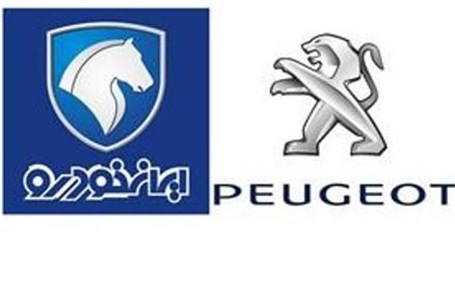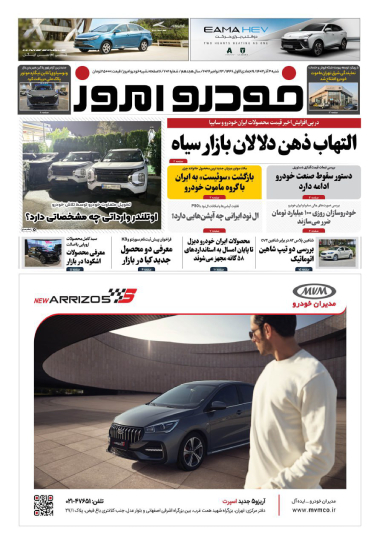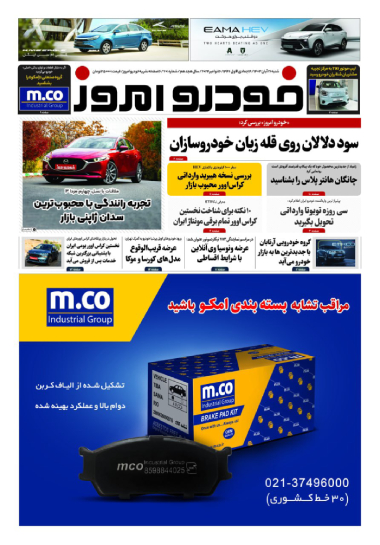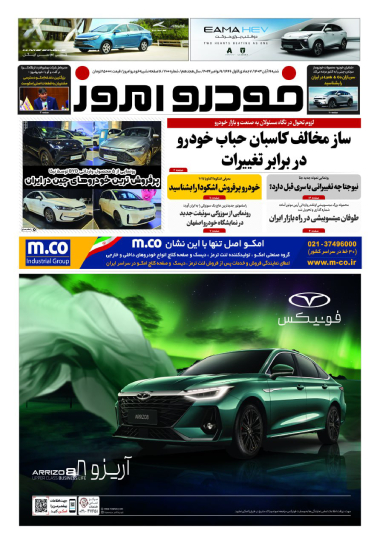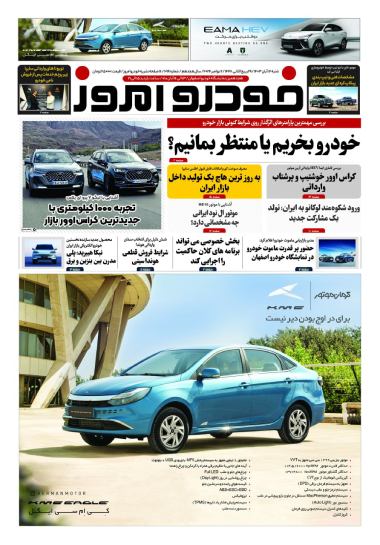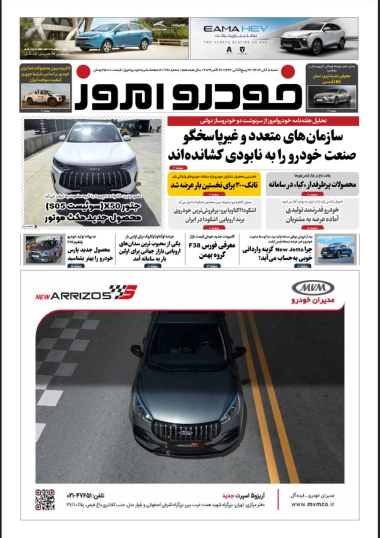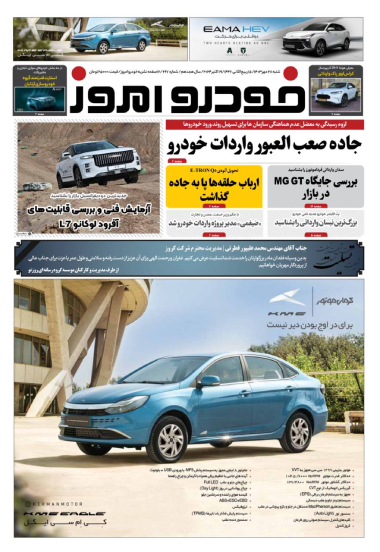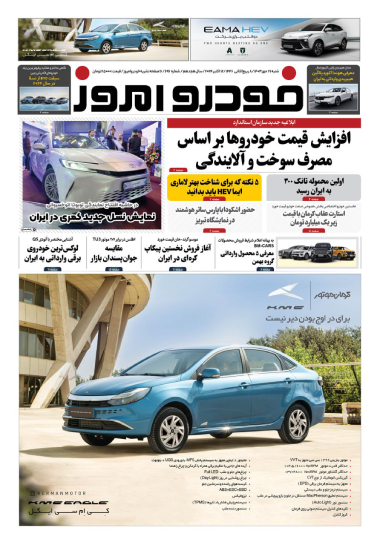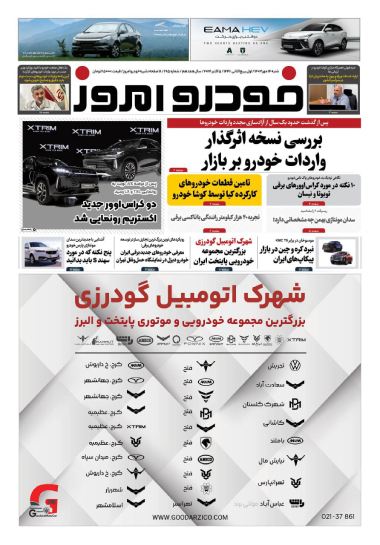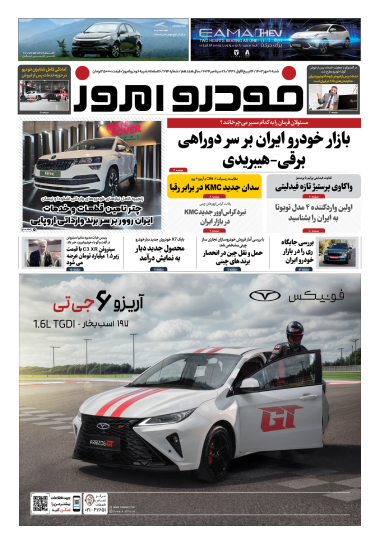


Will Peugeot make Iran an Auto Manufacturer?
Asre Khodro: The Iranian president’s first foreign visit to two large European countries following the lifting of sanctions ended with finalizing long-term contracts worth of $۵۰ billion to buy more than ۱۰۰ aircrafts over the next years, Peugeot’s investment in Iran to manufacture several new cars, and some economic agreements linked with banks, insurance, mining, and agriculture. During the past days, the contracts to purchase planes and cars have been discussed by many critics. This article reviews the contract with Peugeot from two perspectives.
Reporting "Asre Khodro", Compared with the previous contract, this one is a step forward. According to the previous deal signed between Iran and Peugeot in 1995, Peugeot 206 and Peugeot 405 had to be manufactured, and gradually Peugeot Pars and Peugeot 207 were manufactured on 405 and 206 platforms. Irrespective of the details in the contract signed by Iran Khodro and Peugeot twenty years ago, the implementation of the deal entailed two major drawbacks. The first drawback was Peugeot’s cutting ties with Iran without compensation due to the sanctions, which occurred as a result of the pressure on Peugeot by its American partner, General Motors, consequently imposing heavy losses on Iran’s domestic auto manufacturing industry. Following the withdrawal of Peugeot and Reno from Iran’s market in 2011 and 2012, automobile manufacturing inside Iran fell by 50% which imposed a heavy burden on the country’s industry. The second weakness of the contract deals with the significance of technology transfer. Currently, many countries prefer importing complete knock-down kits (CKD), which, in practice, means sufficing to assembly at the most basic level, rather than importing cars. Some Korean and Chinese cars are now being assembled in Iran with such a method; however, regarding the technical and academic competence, and the Iranians’ interest in cars, one of the targets set in the field of industry has been to become a car manufacturing country. In this regard, to be satisfied with the basic level of car manufacturing which is assembling the auto parts is not enough. Thus the Peugeot contract at the time was the first deal, on paper yet, which had considered technology transfer and domestication of Peugeot cars in Iran. However, in practice, the main parts of Peugeot 405 and particularly Peugeot 206 remained French to let the storm of the sanctions swipe our automotive industry and cut car manufacturing by half. Although, gradually, importing similar parts from China compensated for the loss, the fact realized by the previous contract with Peugeot indicated that technology transfer and manufacture of the main parts of Peugeot had not been actualized, and at most, some less important parts were domesticated.
Nevertheless, the new deal, signed after twenty years, has a more positive outlook compared with the old one. According to this contract, a joint company, equally funded by Iran Khodro and Peugeot, will be established and each partner will be in charge of management for two years. Accordingly, the board of directors will be French for two years while the CEO will be from Iran; similarly, in the following two-year period, the Iranians will be held responsible as the board of directors while the CEO will be French. Establishment of a joint company means a stronger guarantee for technology transfer as direct investment of Peugeot, logically, signifies technical projects and knowledge transfer. In other words, given the facts that the joint company will be established in Iran, its hardware infrastructures including the raw material, manufacturing line, and workforces are mainly Iranian, and the management will be shared, the software aspects such as technology transfer will be provided by the French side. Thus, Peugeot will inevitably transfer technology to fulfill its 50% obligation in this joint company. The company will also be required to export 30% of its products. According to CEO of Iran Khodro, should the French party not meet its obligations regarding the export, its domestic sales will be stopped. Therefore, as this cooperation between Iran and France is realized, Iran will become a major car exporting hub in the region. From a realistic perspective, this contract is a step forward compared with the previous one, and can familiarize Iran with the modern technology of European automotive industry*, and modernize Iran’s car industry through domestication and transfer of technology. Thus, despite some harsh critics against this contract, considering the demands of the country, it should be considered a step forward from a realistic perspective.
A neglected ambition
Although the Peugeot contract deserves to be defended, it is noteworthy that, despite compatibility with the realities and needs of today’s world, this deal and similar contracts lack an ideal objective in economy and industry. In other words, with the investments done in automobile industry during past years and after the Islamic Revolution, the capacity to manufacture 1.600.000 cars annually, the remarkable number of technical experts and academic and engineering centers linked with automobile industry, and the possibility to access the huge regional market in addition to the domestic market, if we still do not seek to become a car manufacturer in the true sense of the word, we will have been led astray. This question remains as to why a country with remarkable advancements in nuclear, nanotechnology, missiles, and aerospace fields, could not manage to do the same in a much simpler industry like automobile manufacturing? Putting the positive points of the contract aside, beyond this contract, are we going to lay the foundations for domesticating automotive industry in this country? Is not this ambition possible to realize? Aren’t there any national and regional requisites? Is this ambition too far to be achieved? Have those who consider a level above assembling the ideal for Iran’s automobile industry contented themselves with this contract however better it may seem compared to its predecessor?
It seems that for the automobile industry, as the jewel in the crown of the country’s industry, to lay foundations for a change in industry and to affect industrial development of Iran, a perspective is needed which makes use of contracts like Peugeot deal merely as a step over the status quo, and has an eye to the future so that the country can move from mere copying, no matter how advanced it may be, to creating a domestic industry, and play a more crucial role and leave a more remarkable effect in the added value of domestic production, employment opportunities, and industrial development of the country.
* Although the three Peugeot models mentioned in the contract were produced about six to eight years ago, regarding the promise to manufacture the updated versions of these models, it can be said that relatively up to date Peugeot cars will be manufactured in Iran.
Source: khorasannews
هاچبک پرفورمنس BYD وارد خط تولید میشود
با ۵ دقیقه شارژ ۳۰۰ کیلومتر پیمایش کنید
مرکز اسقاط سایپاخزر در قائم شهر راه اندازی شد
اعمال قانون بیش از ۲۱۰۰۰خودرو و موتورسیکلت به دلیل پوشش پلاک
آیین نامه واردات خودروهای کارکرده کجاست؟
الزام استفاده از شناسه کالا برای ثبت سفارش های صنایع خودرو
تضعیف جایگاه نیسان در تایلند با حضور برندهای چینی
الزام خودروسازان به تخصیص سهمیه ۲۰ درصدی برای مالکان خودروهای فرسوده
آیا روند مجوزدهیها تسهیل خواهد شد؟
تغییر گسل قیمت خودرو
الصاق عکس پلاک به قبض؛ دیگر جریمه اشتباهی نداریم!
دوربرگردان عرضه خودرو از جاده مخصوص به بورس کالا
بزرگترین تولیدکننده باتری اروپا اعلام ورشکستگی کرد
۶۶۳۶ دستگاه خودروی دیزلی معطل شماره گذاری پلیس
اخراج و تعطیلی کارخانه گریبانگیر فولکسواگن

